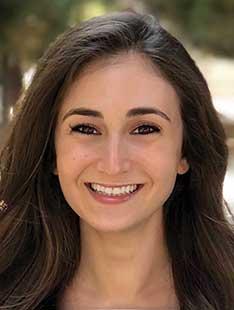Student Science Writers Aim to Make Research More Accessible
‘I thought this would be a really cool opportunity to share ideas and research,’ said Addie Minerva, who co-founded Princeton Insights
Since last April, a group of Princeton undergraduate, graduate, and postdoctoral researchers has been reading through the latest scientific work from the University’s research groups and publishing reviews of their papers with the aim of making the studies more accessible for researchers from other academic departments.

They are part of Princeton Insights, a student-run organization co-founded by Addie Minerva, a second-year Ph.D. student in the Princeton Neuroscience Institute. Minerva was inspired by a class assignment to write a short review in the style of the News & Views essays in Nature, which appeal to a broad audience while staying scientifically accurate.
“Afterwards I was talking to a few friends in other departments outside of neuroscience, and I realized I don’t actually really know what they do for their research,” Minerva said. “I thought, hey, this would be a really cool opportunity to share ideas and research that’s going on [at Princeton] throughout departments.”
Over the past year, about 50 writers and six editors have collaborated to publish 28 reviews in disciplines ranging from chemistry to sociology. Their work is available online at insights.princeton.edu.
The group often reaches out to the authors of the papers they cover to get feedback. “We’ve had really an overwhelmingly positive response,” Minerva said. “The researchers and [principal investigators] and grad students and postdocs who are doing the research have been really excited about our reviews and have wanted to provide a quote and try to help us make these reviews as good as possible.”
Princeton Insights also has started working with The Daily Princetonian to create a podcast called “The Highlights,” in which members will interview the researchers behind the papers they review. The first episode went live in January.
Since Princeton Insights began during the COVID-19 pandemic, the authors and editors have done their work remotely. When the pandemic restrictions on gatherings are eventually lifted, Minerva hopes to host writing workshops and get members together for the first time.
“We’ve grown so quickly and have really expanded to many fields,” Minerva said. “Initially the group was formed to present research to the Princeton research community, but we’ve grown beyond that and we are hoping to expand within Princeton and to the broader public.”











No responses yet